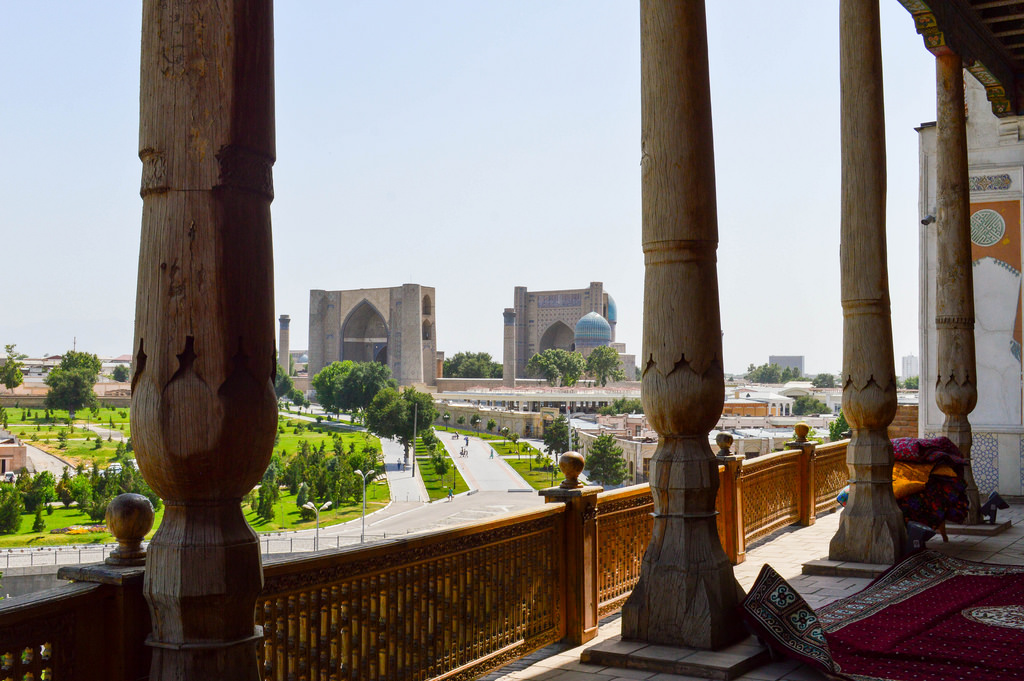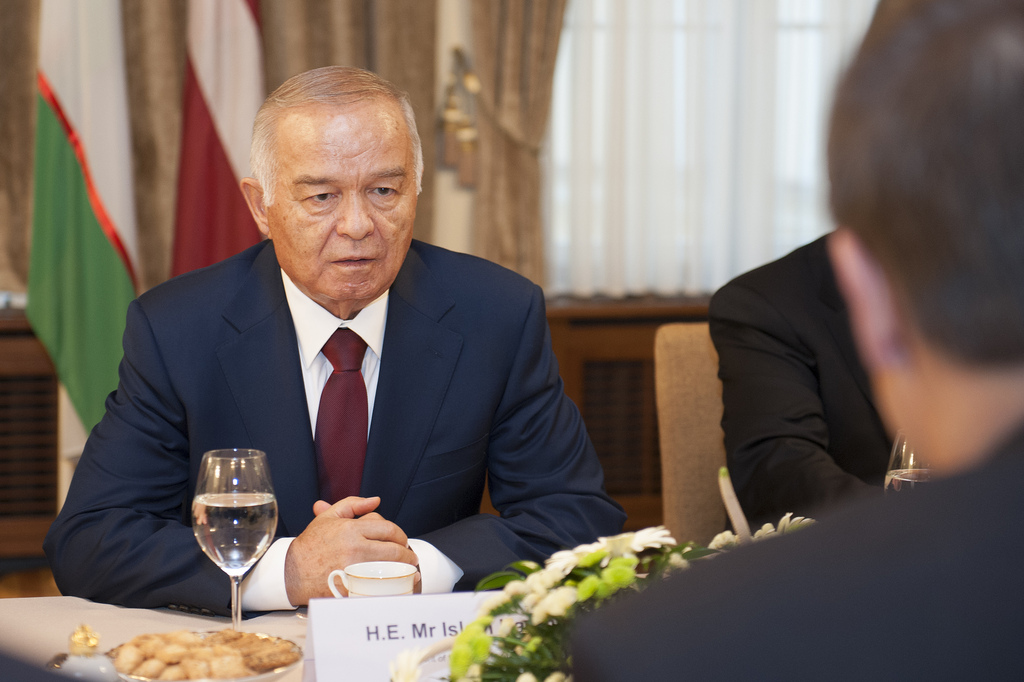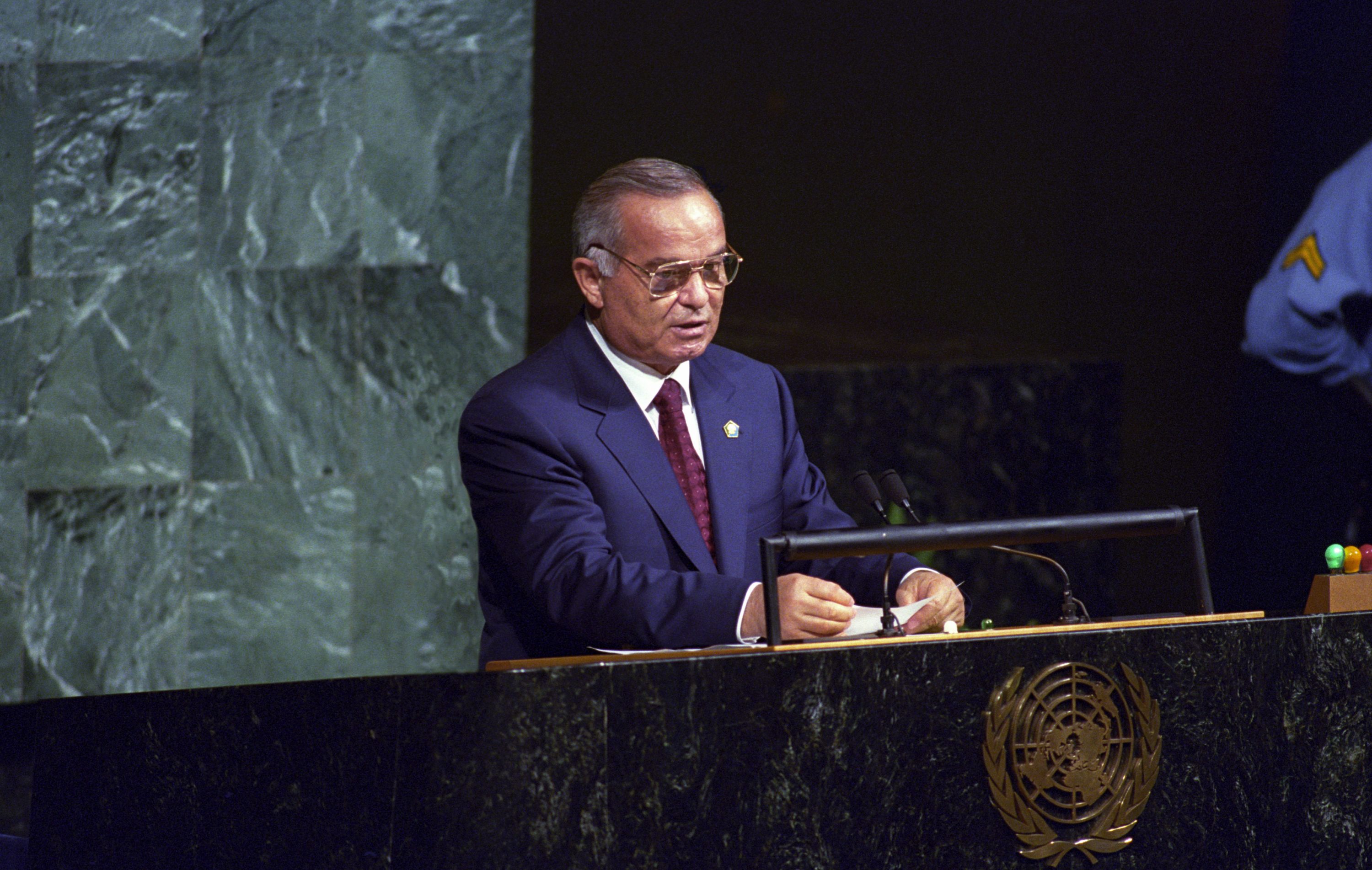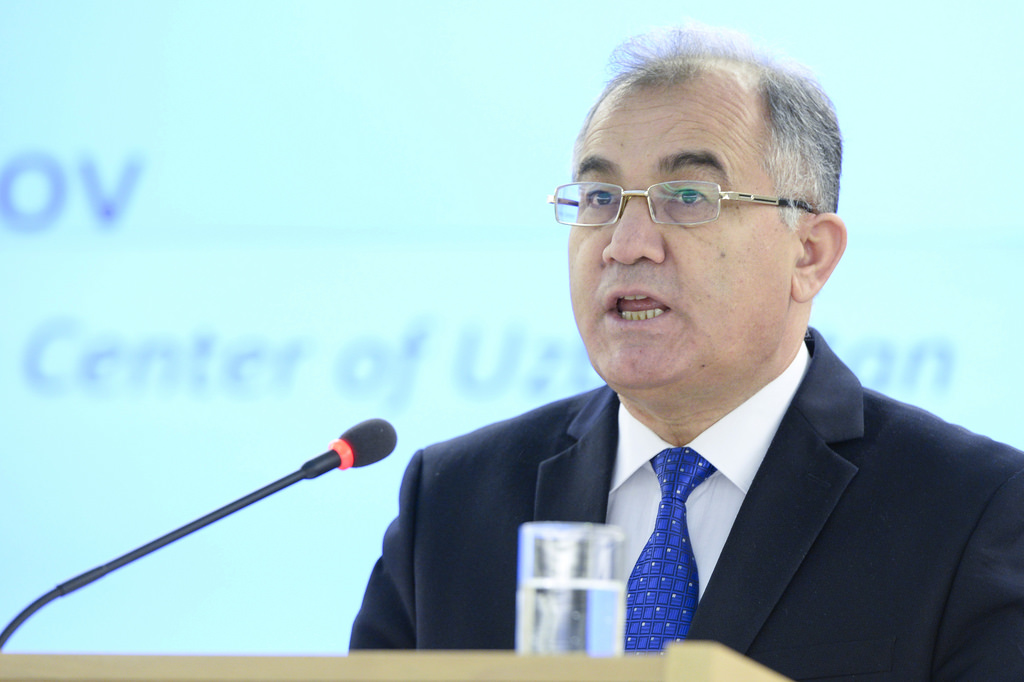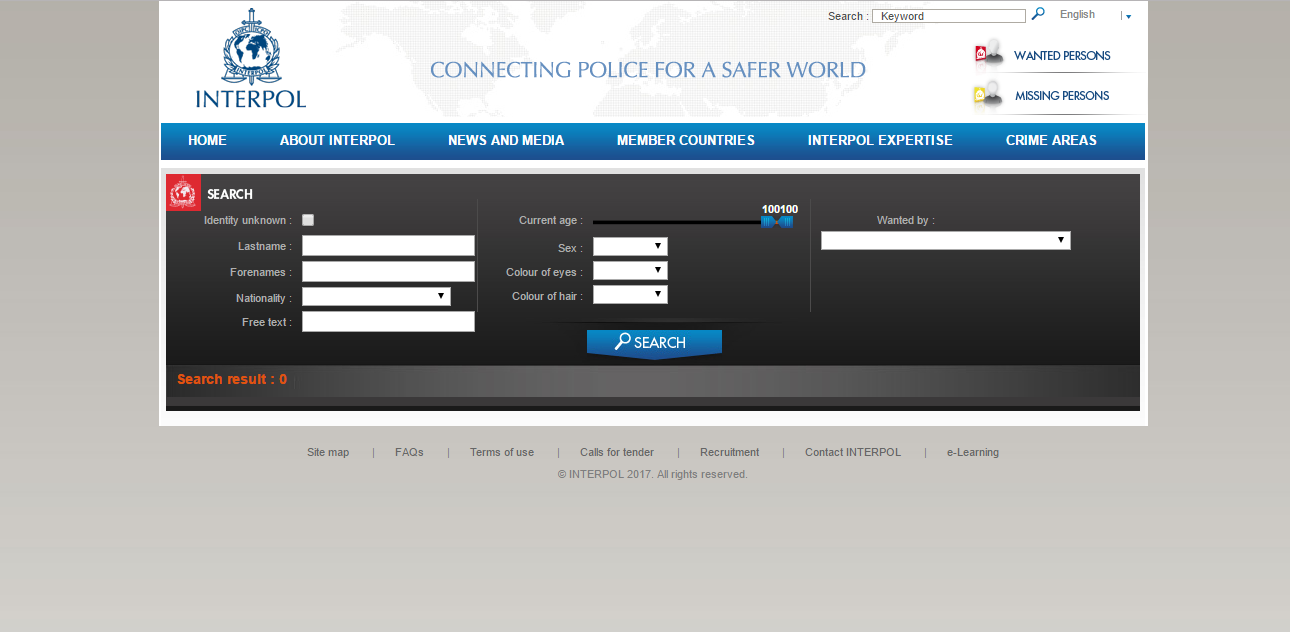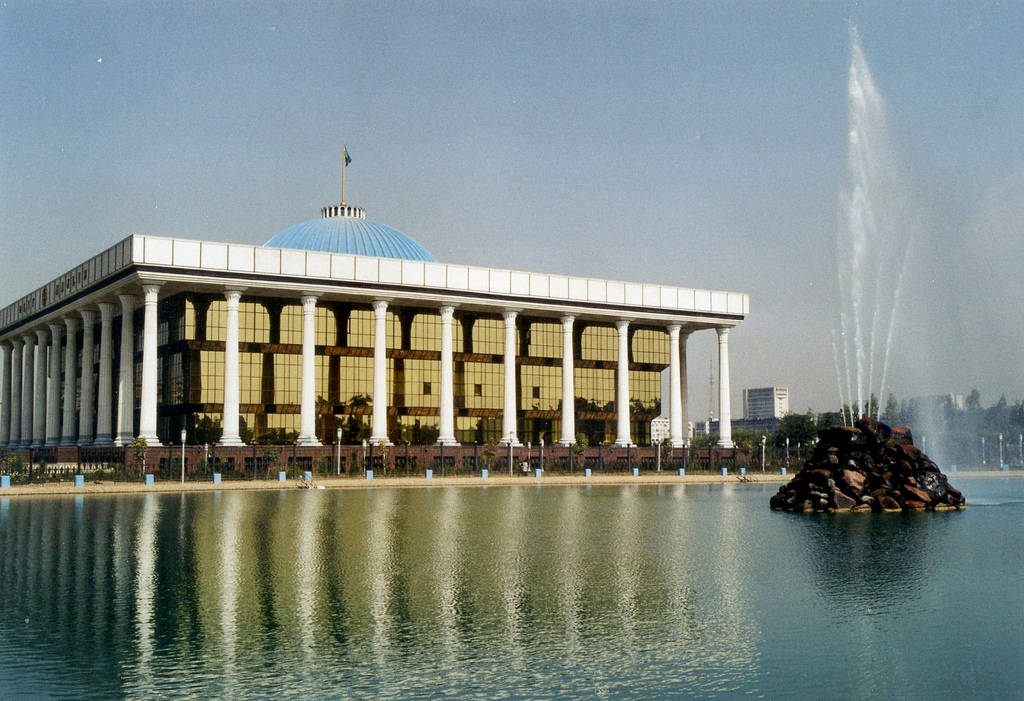The story of Uzbekistan politically motivated persecutions and extraditions for Abkar Abdullaev, nephew of Islam Karimov (defunct Uzbekistan President). International espionage and the misuse of Interpol Red Notices.
The catastrophic human rights situation in Uzbekistan is well known worldwide through the evidence and testimonies of former detainees. Even Uzbek citizens having left the authoritarian state are not safe from the arbitrary will of the Uzbek regime. As human rights specialist Dr. David Lewis points out:
“Central Asian states, such as Uzbekistan, have been particularly active (…) using a wide range of mechanisms to maintain political influence over citizens who have moved abroad. These activities pose a serious threat to the security of dissidents in exile, but also serve to export the dynamics of political repression around the world.”
One of the most serious recent cases of human rights violations concerns Akbar Abdullaev, the nephew of former Uzbek President Islam Karimov. It confirms that Uzbekistan, the torture state, did not in fact change for the better after Karimov’s death.
In the photo: Islam Karimov 17.10.2013 Photo Credit: Reinis Inkēns, Saeimas Kanceleja
On the contrary, the continuation of the Uzbek regime’s oppressive mechanisms under new president Shavkat Mirziyoyev has emerged on the global stage, as shown by Abdullaev’s tragic experience, locked in a dark isolation cell in an Uzbek prison for two and a half years, tortured daily and finally officially released. Worse, his situation is far from resolved: he is once again at acute risk of being sent back to prison in Uzbekistan from the Ukraine where he took refuge. And that means a return to torture.
Uzbekistan may now have a new leader, but the abuses remain unchanged: immense corruption, mass political imprisonment and systematic torture.
Officially, the totalitarian and oppressive rule of Uzbek President Islam Karimov ended on September 2, 2016, the result of a stroke after Karimov had fallen into a coma six days earlier. For decades, one of Asia’s most authoritarian leaders crushed his opposition by systematically imprisoning independent attorneys or methodically extracting false confessions of the arbitrarily accused prisoners under torture during detention.
Today, countless reports from UN organizations and NGOs like Human Rights Watch and Amnesty International, among others, document the brutal history of Karimov’s reign, which is a story of torture, persecution, exploitation and oppression.
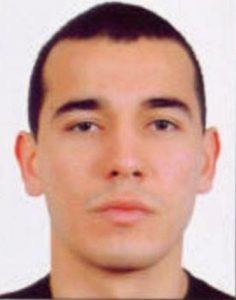 A young man born in Uzbekistan in 1983, whose name is Akbar Abdullaev plays an unfortunate and involuntary part in this story. Yet, this 33-year-old is not any young man, at least as far as the Uzbek regime is concerned. He is the nephew of the recently deceased president Islam Karimov and, thus, was born with a target on his back.
A young man born in Uzbekistan in 1983, whose name is Akbar Abdullaev plays an unfortunate and involuntary part in this story. Yet, this 33-year-old is not any young man, at least as far as the Uzbek regime is concerned. He is the nephew of the recently deceased president Islam Karimov and, thus, was born with a target on his back.
As a result of being forced to fight a complex web of political intrigues at home, his dangerous link to political and economic powers was the basis of his downfall: Akbar Abdullaev was unfairly sentenced as a political pawn with violating § 167 of the Uzbek Criminal Code for committing theft in the form of embezzlement, §168 for committing fraud, § 177 for unlawful acquisition or sale of funds and § 210 for corruption.
Although Abdullaev served his political-motivated sentence, he was accused with precisely the same offenses on 28 December 2016 by the Uzbek regime; although he had been severely tortured in Uzbekistan before, he now faces again the possibility of being treated as a political prisoner, unfairly convicted and psychologically victimized, risking physical torture in an Uzbek secret prison, the idea of which alone is torture enough.
Who is Abkar Abdullaev
For many years, Abdullaev lived as a young businessman following a westernized role model. He never took interest in his home country’s politics as he was well aware of Karimov’s ruthlessness and brutality and of the fact that any political or humanitarian involvement in Uzbekistan usually ended in a prison of the Uzbek secret service and in torture.
Nevertheless, in 2014, Akbar was arrested and sentenced in an unfair trial to 15 years’ imprisonment, which later was reduced to 6 years and 6 months as a result of three Uzbek amnesty decrees.
“For the first three months after my arrest, I was tied to a chair with a bag over my head and was beaten with sticks on a daily basis,” says Abdullaev. During his secret trial, he never saw any written documentation, neither a charge nor investigation records, let alone evidence.
In the photo: President of Uzbekistan Addresses Millennium Summit Islam A. Karimov, President of the Republic of Uzbekistan, addresses the Millennium Summit of the United Nations. 08 September 2000. Uzbekistan is a UN member since 1992. On the forty-sixth session, March 2nd 1992, the General Assembly admitted by acclamation nine States to membership of the United Nations, following the recommendations of the Security Council. Of the nine States, eight are former Republics of the Soviet Union — Moldova, Kazakhstan, Kyrgyzstan, Azerbaijan, Uzbekistan, Tajikistan, Turkmenistan and Armenia. Photo Credit: UN Photo/Susan Markisz
Yet Uzbekistan is a member of the United Nations and as such is expected to observe the principles stipulated in the Universal Declaration of Human Rights. In particular article 29(2) : Everyone has the right to freedom of personal development and laws may restrict this right only in order to maintain the common good and public order in a democratic and constitutional system does not play any role for the Uzbek regime. In article 29, a general principle of international law is established, stating that international human rights may not be restricted arbitrarily, while Uzbekistan is executing the exact opposite in its domestic policy by arbitrary arrests and systematic torture.
Individuals who are declared opponents of the system are publicly discredited and persecuted by the Uzbek secret service worldwide. Even Uzbeks having political asylum are not safe from being kidnapped by the secret service.
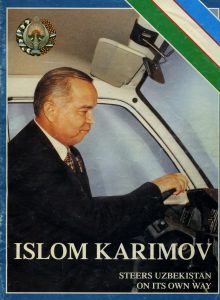 The only thing Karimov knew in his totalitarian madness was how to secure his power. Even his nephew was not safe from the president’s paranoid power grab, since Karimov wanted neither a successor nor was he interested in what would happen after his death. He was only interested in his immediate and unchallenged power. If he felt his power was threatened, he had no sense of family or empathy. For young businessman Akbar Abdullaev, who had fallen into disgrace with Uzbek authoritarian Karimov, his own uncle, the president’s death brought an unprecedented twist.
The only thing Karimov knew in his totalitarian madness was how to secure his power. Even his nephew was not safe from the president’s paranoid power grab, since Karimov wanted neither a successor nor was he interested in what would happen after his death. He was only interested in his immediate and unchallenged power. If he felt his power was threatened, he had no sense of family or empathy. For young businessman Akbar Abdullaev, who had fallen into disgrace with Uzbek authoritarian Karimov, his own uncle, the president’s death brought an unprecedented twist.
After spending two and a half years in a prison cell, Akbar was released on 25 August 2016 from the Uzbek secret service’s custody that had included episodes of torture and solitary confinement. He was given a new passport which allowed him to leave Uzbekistan based on the decision of 18 August 2016 of the Court of Appeal in Tashkent, issued that same day, taking into account that Abdullaev’s sentence had been fully served.
The regained freedom, however, was short-lived.
On 14 January 2017, Akbar Abdullaev was thrown into extradition arrest in Kiev, Ukraine. Currently kept in the infamous Lukyanivska prison, he is facing conditions of imprisonment that do not comply with the minimum standards for the treatment of prisoners.
Systematic Persecution
For Akbar Abdullaev, it all started in 2012. Akbar, who was born into Uzbekistan’s middle class, lived and worked as an entrepreneur in Uzbekistan and other European countries at the time, while traveling back and forth to Uzbekistan where he was involved in various companies. Being the nephew of the president of Uzbekistan, the fact that it was generally assumed he might be a future candidate for presidential elections turned into a disaster for him.
Through a broadly based global Internet campaign, the allegedly London based law firm Huntsman & Lewis was fabricated in order to spread accusations of fraud, money laundering and murder in addition to sundry crimes against Abdullaev. This led to a criminal investigation by the State Criminal Justice Office in Hesse, Germany. That investigation officially concluded that the alleged law firm and the lawyers in question were non-existent and, thus, could not be found. Ultimately, the investigation was discontinued.
In the photo: Website screenshot of Huntsman & Lewis LLP law firm from WaybackMachine. The Wayback Machine is a digital archive of the World Wide Web. It keeps a record of old sites. All names of lawyers used in the site yield no online results. All lawyers indicated are fictitious.
The approach of discrediting and criminalizing potential opponents with broad-based Internet motivated media campaigns is a customary practice of the Uzbek regime. Among others, the Foreign Policy Centre, a UK think tank, has amply documented this procedure of creating negative public perception: this is one of the perfidious strategies torture regimes use to globally legitimize persecution of wanted individuals. In short, it has become a fact that
“Central Asian governments have expanded their activities outside state borders. They mount extensive propaganda exercises to discredit political exiles, creating a discourse in which diaspora and citizens based abroad are seen as potential security threats.”
The Uzbek intelligence service started to spread fake news about Akbar Abdullaev on the Internet in 2012. Abdullaev’s secret trial leading to his conviction in Uzbekistan took just three months.
“Three times a week I was taken from my windowless 3 by 2 meters cell to a prison cell located in the court building”, recalls Abdullaev. In court, he sat across prosecutors and judges, facing them without an attorney. When he finally got access to legal representation, his lawyer informed him outright that he was working for the Uzbek secret service, and he recommended Akbar should plead guilty on all charges regardless of the fact that neither evidence, file inspection nor witnesses existed.
The sentence he received was largely based on allegations of corruption in office. Akbar’s objection that he is neither an official nor holds political office was dismissed as irrelevant. As he did not plead guilty, Abdullaev was sentenced to 15 years’ imprisonment.
In the photo: Akmal Saidov, Minister, Chairman of the National Human Rights Center of Uzbekistan. Credit Photo: UN Photo / Jean-Marc Ferré
Uzbek investigations and trials violate the principles of a fair trial under Article 3 (Torture) and Article 6 (Right to Fair trial) of the ECHR due to frequent lack of a fair trial in Uzbekistan as well as the fact that Uzbekistan does not adhere to the fundamental prohibition of torture.
The Role of the European Court of Human Rights
The European Court of Human Rights has consistently thwarted attempts by the Uzbekistan government to deport Uzbek citizens charged with crimes. Every prisoner in Uzbekistan is at risk of being subjected to torture and of making false confessions extracted under torture.
For each court that has signed the ECHR, this means that granting of extradition to Uzbekistan is a violation of the ECHR. Moreover, a fair trial is a fundamental principle of international law. In recent years, the European Court of Human Rights has issued a number of judgments against the extradition of individuals to Uzbekistan that are accused by Uzbekistan, as in the case of Eshonkulov v Russia [2015].
As a result, in order to act against a person accused in Uzbekistan and on a request from Uzbekistan, confessions and information enforced under torture cannot be allowed in European courts.
“The UN Special Rapporteur on Torture and the ECHR have both found that diplomatic assurances from the Uzbek government do not release States from their obligation not to return an individual to a risk of torture”
Misuse of Interpol Red Notices
Following Karimov’s death, there was a brief moment of hope for Akbar Abdullaev that things would take a turn for the better as Uzbekistan potentially could develop into a state of law under a new president.
However, as shown in the Human Rights Watch report of 2017 concerning Uzbekistan, the hope of ending a terrifying nightmare proved an illusion.
In his first public speech, new Uzbek president Miriziyoyev left no doubt that he intended to continue Karimov’s repressive policies.
After being released from prison by amnesty decrees officially issued by the Uzbek Court of Appeal after two and a half years of imprisonment on 25 August 2016, Akbar was re-arrested a little later in Kiev, Ukraine, as a result of a Red Notice launched by Uzbekistan on fallacious grounds.
In the photo: Interpol Search Engine for Red Notice (Search engine available for other notice is available here).
What happened was this. After he was allowed to leave the country, Akbar went to the Dominican Republic to undergo surgery to treat several painful injuries that were the consequence of the constant ill-treatment and torture he had endured while in custody. He felt relatively safe, as he was given a new passport, but when he landed in Kiev on 14 January 2017, Ukrainian authorities immediately executed the Uzbek national arrest warrant resulting from the Red Notice issued by Interpol.
A Red Notice, in practice, is an alert sent around to Interpol’s 190 member states, and this one called for the arrest of Akbar Abdullaev and his extradition to Uzbekistan.
Uzbekistan systematically utilizes the Interpol system to track down and arrest regime opponents wanted worldwide by the Uzbek government. Hence the procedure is always the same.
Like in the case of Akbar Abdullaev, politically motivated persecuted individuals are publicly criminalized with groundless accusations in the global media first.
As a next step, targets are sentenced in absentia during an unfair trial, leading to national arrest warrants finally published internationally by Interpol.
The abuse of Interpol’s Red Notices by torture states like Uzbekistan is documented in numerous reports. Nevertheless, Interpol continues to repeatedly act based on requests from Uzbekistan, “even though Article 3 of Interpol’s constitution expressly prohibits Interpol from interfering or acting in any form with politically, militarily or religiously motivated cases”, as stressed by Frankfurt based Human Rights attorney Oliver Wallasch. Moreover, as he put it, “Abdullaev, as nephew of the wife of the former president of Uzbekistan, is the victim of bogus charges against him, fabricated by the requesting country Uzbekistan. The case is clearly and highly politically motivated”.
“EU states should resist unwarranted extradition requests and Interpol ‘Red Notices’ against political exiles, ensure that those seeking political asylum are fully protected and constrain foreign intelligence activities targeting […] dissidents under their jurisdiction.”
The Real Risk of Being Sent Back to Torture
The exceptional circumstance of the case of 33-year old Akbar Abdullaev lies in the fact that although Abdullaev was previously released from torture detention, he is now being held in extradition custody in Kiev where he is in danger of getting sent back to a torture prison in Uzbekistan.
Since Ukraine has signed the European Human Rights Convention as well as the UN Convention against Torture and UN Refugee Convention, the fact that Ukrainian authorities arrested Akbar Abdullaev with awareness of the oppressive situation in Uzbekistan is incomprehensible.
For the Ukraine, this approach is likely to have an extremely negative impact on the country’s international image: It raises doubts as to whether Ukraine really applies its commitments from the European Convention of Human Rights (ECHR), which in turn is a prerequisite for the Association Agreement with the EU anticipated by the Ukraine.
In the photo: Uzbekistan Court of Appeal in Tashkent. Photo credit: Sludge G.
In addition to the fundamental right to a fair trial and absolute ban on torture, it is legally impossible to convict an individual twice for the same offense. Yet Uzbekistan’s current allegations against Akbar Abdullaev are disregarding the fact that they are identical to the former allegations, for which Abdullaev has already been convicted. Moreover, as officially confirmed by the Uzbek Court of Appeal in Tashkent, Abdullaev has fully served his term.
Since 9/11, steadily growing restrictions of human rights are justified under the headline of “war against terror”. As a result, in the context of fighting against international terrorism, EU Member States constantly cooperate with countries that disregard the principles codified in the ECHR and Charter of Fundamental Rights of the European Union, as the example of Uzbekistan shows.
Uzbekistan regularly and systematically violates the UN Convention Against Torture and Other Cruel, Inhuman or Degrading Treatment or Punishment. And with the slogan “Dialogue, not sanctions”, a new EU-Central Asia Strategy was adopted in 2007 under the title “Partnership for the Future”. The unfortunate fact that there is a particular logistical need to use the airport in Uzbekistan for the transport of troops to and from Afghanistan, seems to have led to an observable softening of the obligations arising from UN Treaties and the ECHR on the administrative and political level.
Necessities engendered by the “war on terror” has tended to shape European politics that justify collaboration with torture states. In so doing, we do not only lose credibility, but we lose what distinguishes us from terror and totalitarian systems. With this, we relativize our previously inviolable declared values, such as the absolute prohibition of torture.
The return to a principle in which the end justifies the means signifies the return to barbarism in which the law is set arbitrarily and human dignity is the subject of arbitrariness. Thus, the state becomes an end in itself where citizens are only potential risks monitored and spied on without the requirement of the presumption of innocence – in short, in a state of law, a man is innocent until proven guilty. Otherwise, it is not a state of law.
Ultimately, if Ukraine is to comply with its obligation resulting from the ECHR, it must instantly release Akbar Abdullaev from custody and under no circumstance extradite him to Uzbekistan.
Any other decision would signify on its part a clear departure from the rule of law towards giving support to dictatorial states where there is no dignity and no morality.


